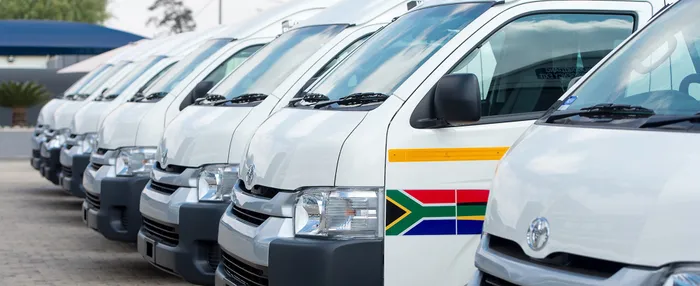Analyst weighs in on how taxis can be improved

Integrating taxis into state-run operations could shift governance and investment in urban mobility.
Image: File
MINIBUS taxis are owned and operated by private entrepreneurs yet carry the lion's share of urban commuters, so recognising them would improve coordination of routes, fares, and safety regulations.
This is the view of social commentator and political economist Nco Dube, who believes unlocking state subsidies and infrastructure funding may boost the sector and stimulate oversight.
"Treating them strictly as private firms preserves operator autonomy and informal governance structures but perpetuates regulatory ambiguity and conflict over permits and enforcement," said Dube.
"Both the state and the taxi industry resist full formalisation, creating a regulatory grey zone that fuels repeated shutdowns. Municipalities cite a backlog in issuing and renewing operating licences. Taxi bodies distrust enforcement, arguing impoundments often target vehicles with valid permits. This mutual reluctance to regularise operations sparks clashes around route approvals, impoundments and permit yield disputes."

Nco Dube, a political economist, businessman and social commentator
Image: Supplied
Dube believes integrating taxis into state-run operations would shift governance and investment in urban mobility.
He said centralised route planning could reduce overlap and oversaturation, optimising fleet deployment.
"I would give access to public funding for rank infrastructure and rolling stock upgrades. Mandatory compliance with safety, labour and environmental standards. There is potential erosion of taxi associations’ informal revenue streams and bargaining power," said Dube.
"Taxi associations' claim that apartheid-era layouts force long township-to-CBD commutes remains valid. It continues to inflate travel and daily operation costs for drivers. Place economic pressure on commuters earning on a no–work, no–pay basis."
Dube said projects like GO!Durban and integrated transport plans aim to rebalance spatial inequality but often sideline taxis.
"Priority bus lanes compete with taxis for scarce road space. Tendered routes and fixed schedules challenge the sector’s informal route-sharing arrangements, and the perceived exclusion from planning forums deepens mistrust between operators and authorities."
The dilapidated taxi-specific built environment undermines livelihoods and commuter welfare, according to Dube.
"Poor sanitation, safety and shelter degrade the passenger experience. Limited rank capacity forces operators to cruise streets, wasting fuel and increasing costs. Lack of formal amenities (offices, ticketing, vehicle maintenance) stalls opportunities for licensed expansion."
The impact of taxi strikes, like the three-day strike seen in Clermont, west of Durban, which graduated into a city-wide shutdown on Thursday, can grind the city to a halt, highlighting the sector’s leverage over urban mobility.
"Two-day stay-aways leave thousands of commuters stranded and cripple retail foot traffic. The state struggles to enforce permit rules without shutting down essential services. Operators wield de facto veto power over transport continuity, forcing high-level interventions," said Dube.
Related Topics: